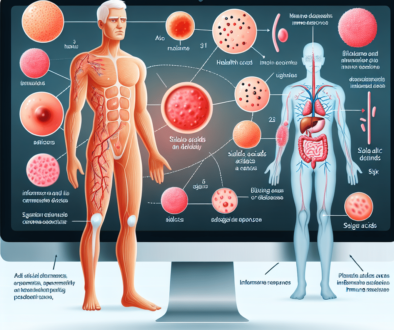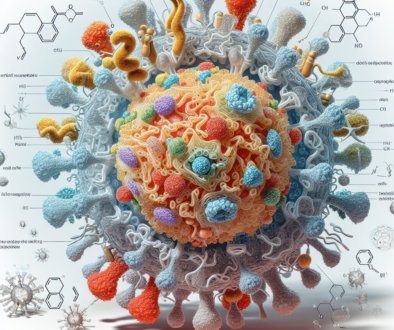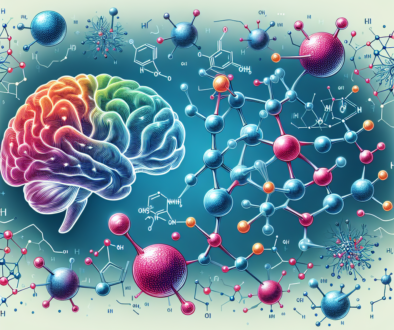Sialic Acid: Advancing Women’s Health
-
Table of Contents
- Sialic Acid: A Key to Advancing Women’s Health
- Understanding Sialic Acid and Its Functions
- The Role of Sialic Acid in Reproductive Health
- Sialic Acid and Chronic Disease Prevention
- Case Studies and Research Highlights
- Supplementation and Dietary Sources of Sialic Acid
- Challenges and Future Directions
- Conclusion: Embracing Sialic Acid for Women’s Health
- Enhance Your Health with ETprotein’s Protein Products
Sialic Acid: A Key to Advancing Women’s Health

Sialic acid, a term not commonly heard outside of biochemical circles, is increasingly becoming a focal point in the discussion of women’s health. This naturally occurring carbohydrate is found on the surfaces of cells and proteins and plays a crucial role in various biological processes, including immune response, cell signaling, and the stabilization of protein structures. Its implications for women’s health are vast, ranging from reproductive health to the prevention of chronic diseases. This article delves into the significance of sialic acid in women’s health, supported by research, examples, and statistics.
Understanding Sialic Acid and Its Functions
Sialic acid is a family of nine-carbon sugars that are typically found at the outermost end of glycan chains on the cell surface. They are involved in a myriad of physiological and pathological processes. Here are some of the key functions of sialic acid:
- Cellular communication and signaling
- Regulation of the immune system
- Involvement in pathogen recognition and response
- Modulation of inflammation
- Stabilization and lifespan of glycoproteins
The Role of Sialic Acid in Reproductive Health
One of the most critical areas where sialic acid plays a part is in female reproductive health. It is essential for the development and function of the reproductive system.
- Fertilization: Sialic acid residues on the surface of the egg cell are necessary for the recognition and binding of sperm, facilitating successful fertilization.
- Pregnancy: During pregnancy, sialic acid-rich glycoproteins contribute to the formation of the placenta and are involved in the immune tolerance required between the mother and the fetus.
- Hormonal Regulation: Sialylation, the process of adding sialic acid to molecules, affects the activity of hormones that are critical for women’s health, such as estrogen and progesterone.
Sialic Acid and Chronic Disease Prevention
Chronic diseases pose a significant threat to women’s health globally. Sialic acid’s role in the prevention and management of these diseases is an area of active research.
- Cardiovascular Health: Abnormal levels of sialic acid have been linked to cardiovascular diseases, which are leading causes of death among women. Monitoring sialic acid levels could be crucial for early detection and prevention strategies.
- Cancer: Changes in sialylation patterns on cancer cells can influence tumor growth, metastasis, and the body’s immune response to cancer. Therapies targeting sialic acid metabolism are being explored as potential cancer treatments.
- Diabetes: Sialic acid is involved in the regulation of insulin receptors. Studies suggest that altered sialylation may contribute to insulin resistance, a precursor to type 2 diabetes, which affects millions of women worldwide.
Case Studies and Research Highlights
Several studies have highlighted the importance of sialic acid in women’s health. For instance, research has shown that sialic acid concentrations can vary during the menstrual cycle, suggesting a link to hormonal regulation. Additionally, elevated levels of sialic acid have been observed in women with endometriosis, indicating its potential as a biomarker for this condition.
In the context of pregnancy, a study found that low sialic acid levels in pregnant women could be associated with pre-eclampsia, a condition that can have severe consequences for both mother and child. These findings underscore the need for further research into sialic acid as a diagnostic tool.
Supplementation and Dietary Sources of Sialic Acid
Given the importance of sialic acid in women’s health, maintaining adequate levels is essential. While the body can synthesize sialic acid, dietary intake can also contribute to its levels. Foods rich in sialic acid include:
- Dairy products, especially human breast milk
- Eggs
- Meat
For those who may require supplementation, sialic acid is available in various forms, including as a component of dietary supplements aimed at improving cognitive function and immune health.
Challenges and Future Directions
Despite its potential, there are challenges in harnessing sialic acid for health benefits. One of the main issues is the complexity of sialylation patterns and their diverse roles in different tissues and diseases. Future research should focus on understanding these patterns and developing targeted therapies and diagnostics.
Conclusion: Embracing Sialic Acid for Women’s Health
In conclusion, sialic acid holds significant promise for advancing women’s health. From its critical role in reproductive health to its potential in preventing and managing chronic diseases, sialic acid is a molecule worth paying attention to. As research continues to unravel its complexities, we can expect to see more targeted applications that leverage sialic acid for the benefit of women’s health.
Enhance Your Health with ETprotein’s Protein Products
For those looking to support their health with high-quality protein products, ETprotein offers a range of options that can complement a diet rich in sialic acid. Their organic bulk vegan proteins are ideal for individuals seeking non-GMO, allergen-free supplements. With a focus on purity and quality, ETprotein’s offerings can be an excellent addition to a health-conscious lifestyle, particularly for women who are mindful of their reproductive and overall health.
About ETprotein:
ETprotein, a reputable protein and L-(+)-Ergothioneine (EGT) Chinese factory manufacturer and supplier, is renowned for producing, stocking, exporting, and delivering the highest quality organic bulk vegan proteins and L-(+)-Ergothioneine. They include Organic rice protein, clear rice protein, pea protein, clear pea protein, watermelon seed protein, pumpkin seed protein, sunflower seed protein, mung bean protein, peanut protein, and L-(+)-Ergothioneine EGT Pharmaceutical grade, L-(+)-Ergothioneine EGT food grade, L-(+)-Ergothioneine EGT cosmetic grade, L-(+)-Ergothioneine EGT reference grade and L-(+)-Ergothioneine EGT standard. Their offerings, characterized by a neutral taste, non-GMO, allergen-free attributes, with L-(+)-Ergothioneine purity over 98%, 99%, cater to a diverse range of industries. They serve nutraceutical, pharmaceutical, cosmeceutical, veterinary, as well as food and beverage finished product distributors, traders, and manufacturers across Europe, USA, Canada, Australia, Thailand, Japan, Korea, Brazil, and Chile, among others.
ETprotein specialization includes exporting and delivering tailor-made protein powder and finished nutritional supplements. Their extensive product range covers sectors like Food and Beverage, Sports Nutrition, Weight Management, Dietary Supplements, Health and Wellness Products, and Infant Formula, ensuring comprehensive solutions to meet all your protein needs.
As a trusted company by leading global food and beverage brands and Fortune 500 companies, ETprotein reinforces China’s reputation in the global arena. For more information or to sample their products, please contact them and email sales(at)ETprotein.com today.












